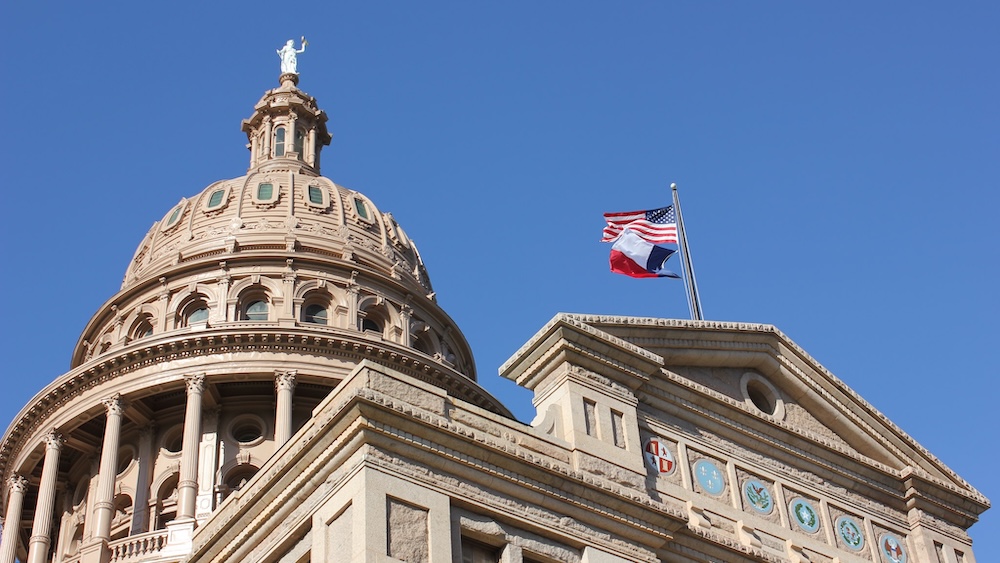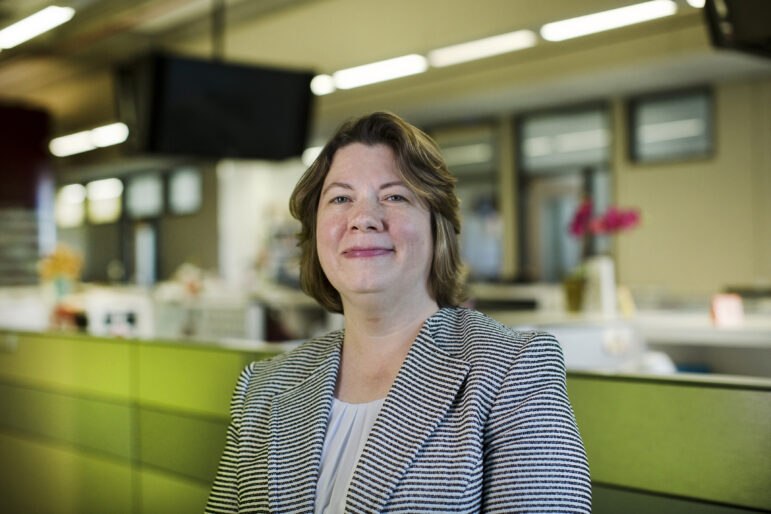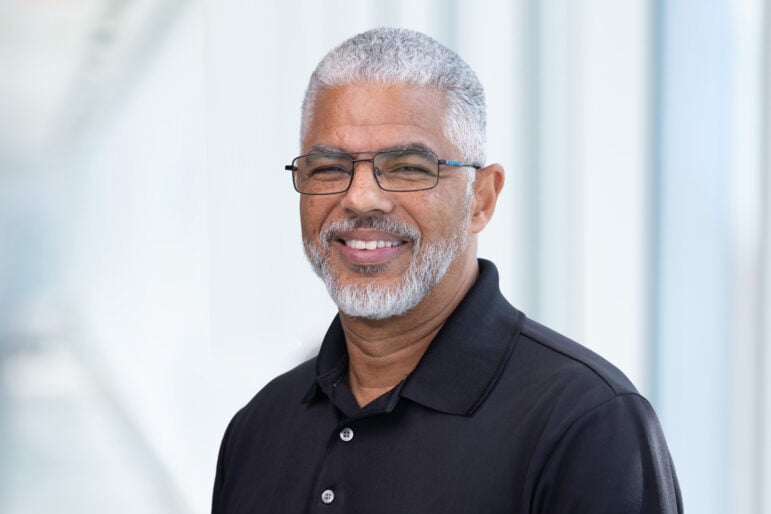How anti-diversity laws are jeopardizing pubmedia’s DEI efforts

Nicolas Henderson / Flickr via Creative Commons
The Texas state capitol building.
KUT in Austin, Texas had been working to bolster its workplace culture in recent years, but a new law has stymied those efforts.
Last year, Texas’ state legislature passed Senate Bill 17, which bans various diversity, equity and inclusion efforts at public universities. The law went into effect Jan. 1.
“The biggest impact for us is, first of all, the training issue, because we had been doing a lot of training,” said CEO Debbie Hiott. The new law bans mandatory DEI training.
The Texas law is part of a broader attack by Republican lawmakers and conservative institutions on DEI efforts at universities and in corporate America. At least five states have passed laws that follow a model proposed early last year by two conservative think tanks, the Manhattan Institute and the Goldwater Institute.
The laws have banned measures at public universities such as the posting of diversity statements, the creation of DEI offices, hiring DEI staff, requirements for diversity training, and identity-based hiring preferences, according to the Chronicle of Higher Education, which has been tracking the bills. Legislatures in more than 20 states have considered similar bills.
While the bills do not directly target public media, many stations are licensed to public universities. In states where anti-DEI laws have passed, stations licensed to public universities must comply with the legislation.
Public media leaders vary in their reactions to the laws. Some downplay the laws’ impact, while others say they’re concerned that the laws will curtail DEI work.
“If we can assume that this larger societal trend to demonize DEI continues, then our journalists across the country, whether in the states with laws being passed or not, will be confronting a more difficult road to achieving the kind of fairness, accuracy and completeness that DEI is about,” said Keith Woods, NPR’s chief diversity officer.
Early effects
The new laws have already had a broader effect on public media. In October, CPB revised its diversity policy for Community Service Grant recipients. Stations were previously required to complete at least one of five specific diversity-related actions annually, such as attending “minority or other diversity job fairs” or providing diversity training for management, staff and the station’s board or governing body. CPB also “strongly encouraged” stations to interview at least one “diversity candidate” for any senior position they aimed to fill.
CPB updated the policy by dropping that language, as well as the requirement that stations post a 500-word diversity statement on their websites or make one available at their offices.
Even after the revisions, Sen. Ted Cruz (R-Texas) questioned the constitutionality of the policy last month. In a response to Cruz, CPB CEO Patricia Harrison said that in states that have passed anti-DEI laws, some stations may have been disqualified from receiving CSGs if CPB did not revise the policy.
Among stations in states where laws have passed, KUT has felt a substantial impact. It is also the only one of the three stations whose leaders spoke with Current that has participated in Public Media for All, a coalition that encourages organizations to focus on DEI.
In addition to rolling back mandatory DEI training, KUT has also modified its approach to hiring. Among DEI policies that the station adopted in 2020 was a guideline stating that a hiring pool of three qualified candidates should include at least one candidate of color.
The legal department at the University of Texas, KUT’s licensee, told Hiott that “you can’t do that at all,” she said.

“We can no longer explicitly say that we consider that a guideline,” she said. “But we still have the ability to decide whether or not we have a qualified pool of candidates … to go forward with the hiring.”
She had also wanted to hire an internal culture officer, which the new law prohibits. And the station had wanted to use artists of color to design its premiums, but the university’s legal department said KUT could not explicitly pursue that.
Details about what else the law does and does not permit are still being worked out, Hiott said. The station has been working with the university’s legal department to determine “what really constitutes DEI versus what is workplace training,” she said.
“I don’t have any desire or intention to break state law,” Hiott said. “But I also want to make sure we serve our community in the right way. And there are some issues where it’s a pretty fine line. So I’m trying to be careful about that.”
Hiott said she’s concerned about how such laws could affect DEI work at public university licensees across the country. The laws could give “cover” to station leaders or staff who aren’t “truly committed to the notion of equity,” she said.
Texas Tech Public Media in Lubbock had to disband a DEI committee because of the Texas law, an employee said during a session at the Public Radio Program Directors Association conference last year. Alisan Sweet, the station’s interim general director, did not grant an interview to Current. A representative from Texas Tech University, the station’s licensee, did not respond to a request for comment.
No ‘major overhaul’
Lisa Shumate, GM of Houston Public Media, said that she doesn’t expect the Texas law to have a major impact on her station.
When SB 17 passed, HPM looked over its website and editorial policy “just to make sure that we were within the spirit of the intent” of the law, Shumate said.

“We might have had some tweaks, but there wasn’t any major overhaul or anything like that,” she said.
The law didn’t affect HPM’s hiring policies, which “were always anti-discriminatory in keeping with the federal protections on that,” Shumate said.
“We have always been proactive about making sure we have an inclusive talent pool and an inclusive hiring committee,” she said, which won’t change under the new law.
“Even though there are laws at the state level that made some changes, the spirit of diversity … and all the benefits of that is alive and well at Houston Public Media and at the University of Houston,” Shumate said.
The station also has a culture committee, which will continue, she said.
JoAnn Urofsky, GM of WUSF in Tampa, Fla., said the passage of two anti-DEI laws in Florida will not affect the station’s work. Like the law in Texas, Florida’s legislation banned diversity statements, offices and staff positions focused on DEI, and identity-based hiring policies. Florida’s laws did not prohibit mandatory DEI training, however.
The laws are “on people’s minds, but I don’t think they have changed anything for us,” Urofsky said.
Last year, she asked her university’s legal department whether a diversity statement could remain on the station’s website. The department signed off on the statement.
The station is in the midst of strategic planning, and Urofsky said that “issues of inclusion are being considered at every level.”
Slowing the work
Though some leaders say their stations have not been significantly affected, NPR’s Woods said state anti-DEI laws could have a “chilling effect.” “There’s absolutely no question that it’s going to have an impact that is going to slow the work, if it doesn’t stop it cold,” Woods said.
The vague wording of the laws could cause leaders to be cautious, he said. “You don’t know what you can and can’t do, and that then tends to tie people’s hands,” Woods said.
Woods said he has heard from leaders at stations in states that have passed anti-DEI laws that they will need help with DEI training.

“We have no role in helping people subvert the law. We don’t want to be cast that way,” Woods said. “What we can do is continue to provide the kind of member service help and advocacy that we have as a membership organization. And that includes the kind of training that we’ve offered to stations for the last 14 years that I’ve been at NPR.”
Moving forward, Woods said he hopes to help stations share knowledge, resources and opportunities. For instance, a station that has not been affected by anti-DEI laws could include a member station that has been affected in its training, he said.
NPR can also “offer direct help with stations that are trying to figure out how to serve a diverse community, provide content that speaks to all audiences and reflect in their content the most accurate, most complete coverage,” Woods said.
“That’s the point of this DEI work,” he said. “And there’s no law that can be passed that can make those values illegal.”
Current Digital Editor Mike Janssen contributed reporting to this article.





